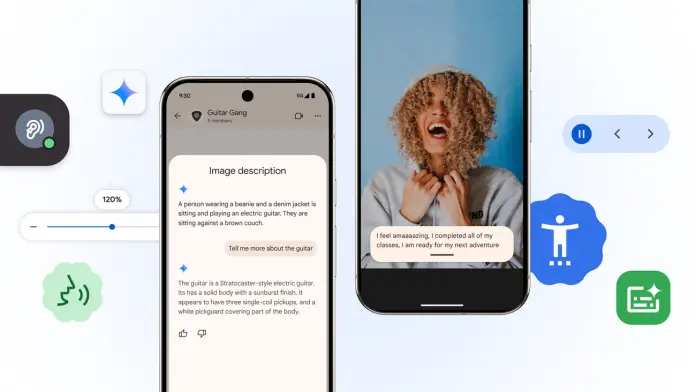In an era where technology is increasingly pivotal in shaping daily operations, small business owners must pay attention to advancements that enhance accessibility and usability. Google recently unveiled significant enhancements to its Project Euphonia and accessibility features in Chrome, aiming to improve speech recognition and user experience for diverse populations. These developments present both opportunities and challenges for small businesses eager to adopt innovative solutions.
Launched in 2019, Project Euphonia seeks to help those with non-standard speech patterns leverage more effective speech recognition technology. Google’s new initiative expands on this by providing developers worldwide with open-source resources via the project’s GitHub page. This means small business owners can tap into tools that allow for tailored audio solutions, crucial for industries where effective communication is vital.
The ability to develop personalized applications for a range of speech patterns can empower businesses to connect better with clients or employees who might have difficulty using conventional communication methods. For instance, an organization that serves clients with speech impairments can create custom software that incorporates their specific speech patterns, fostering a more inclusive environment.
Moreover, Google’s collaboration with the University College London to support the Centre for Digital Language Inclusion (CDLI) underlines its commitment to improving accessibility in Africa. This initiative focuses on enhancing speech recognition support for non-English speakers by creating open-source datasets in ten African languages. For small business owners operating in or engaging with African markets, this presents an opportunity to develop products or services that cater to a wider audience, bridging communication gaps that often hinder business expansion.
Accessibility advancements also extend to educational tools, which small business owners in the tutoring or educational technology sectors would find beneficial. Google’s integration of built-in accessibility features in its Chromebook platform, including the ChromeVox screen reader and Dictation, enhances resources available for students with disabilities. For businesses in education, being equipped with the right tools can dramatically improve learning outcomes and experiences for all students, potentially attracting a more diverse clientele.
In terms of practical applications, small businesses can utilize features like Optical Character Recognition (OCR) within Chrome to make PDF documents more accessible. This change allows users, particularly those with visual impairments, to interact with scanned PDFs using screen readers, thus streamlining document processes central to many businesses.
Additionally, the Page Zoom feature in Chrome for Android allows users to magnify text without disrupting the visual layout of web pages. For businesses, this means better usability on mobile devices, crucial for maintaining customer engagement in an increasingly mobile-driven market.
While these innovations are undoubtedly beneficial, small business owners should also consider potential challenges. The integration of new technologies often requires investment in training and adapting current systems to accommodate updated accessibility features. Additionally, there may be a learning curve as teams adjust to new processes and tools, which could momentarily impact productivity.
Furthermore, as businesses commit to inclusivity, it’s crucial to remain aware of regulatory standards for accessibility in their respective industries. Staying compliant while implementing new technologies requires careful planning and consideration.
Google’s efforts to improve accessibility through Project Euphonia and enhanced Chrome features illustrate a significant step forward for businesses committed to inclusivity. Small business owners should explore how these advancements can be strategically incorporated into their operations, ultimately fostering a more diverse and accessible workplace.
For further insights and detailed information on these developments, you can view the original announcement here.
Image Via Chrome



